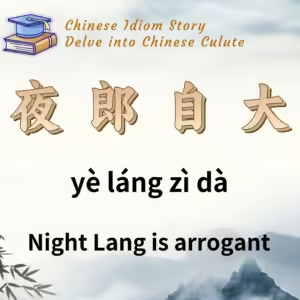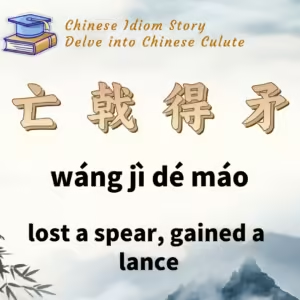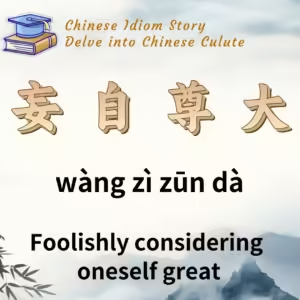
Chinese Idiom: 夜郎自大 (Ye Lang Zi Da)
English Translation: Night Lang is arrogant
pīn yīn: yè láng zì dà
Idiom Meaning: This idiom metaphorically describes someone who is ignorant and uninformed yet holds an inflated sense of self-importance.
Historical Source: “Book of Han” (《汉书·西南夷传》), which recounts the history of the southwestern tribes during the Western Han Dynasty.
Idiom Story:
During the Western Han Dynasty, there was a small kingdom known as Night Lang (夜郎) located in the western region of present-day Guizhou Province. The kingdom’s area was roughly equivalent to that of a single district in the Han Dynasty.
At that time, Night Lang was merely a minor tribe surrounded by towering mountains, which made communication and transportation very challenging. As a result, it had little contact with the central plains of China. Although there were several neighboring tribes, none were as large as Night Lang. The leader of Night Lang, Zhu Duo Tong, had never ventured beyond his territory and thus believed that the world was as vast as the small area he knew.
In 122 BC, when Emperor Wu of Han sent envoys to visit Night Lang, Zhu Duo Tong boldly asked the Han emissary, “Which is greater, the Han Dynasty or our Night Lang?” His question reflected not only his ignorance of the broader world but also his arrogance in assuming that Night Lang was the most significant power.
The story of Night Lang serves as a cautionary tale about the dangers of ignorance and arrogance, encapsulated in the idiom “夜郎自大.” It highlights how a limited perspective can lead to a false sense of superiority.






